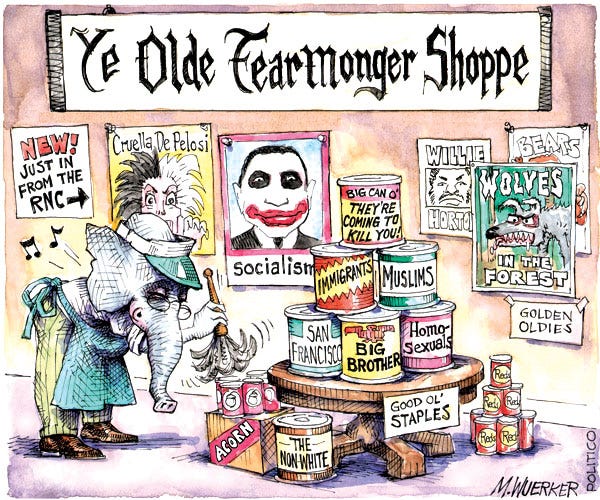What is the right way to think about the problems facing humanity?
For many people the answer is of course, to be realistic. Someone who works in the renewable energy industry recently approached me after a talk and told me that I was being too positive and that my analysis wasn’t grounded in reality. It’s all very well to tell people about wonderful inventions that are going to change the world, they said, but how likely is it that these will actually make a difference? People talk about imaginary futures all the time and we’re constantly being promised amazing things which never materialise.
At its most innocent critics suggest that this is a form of techno-utopianism; a type of wish fulfillment. It’s got a long and embarrassing history. It used to be mail sent by vacuum tubes to every home, or robot maids in every home. Today, it’s tiny machines in our bloodstream, or colonies on Mars.Sociologists suggest that our visions of the future are rooted in escapism. That’s why over-enthusiastic predictions often emerge in times of economic downturns or political turmoil; they’re a reflection of a preferred world, one in which we don’t have to deal with drudgery of household tasks or the lies of our politicians. In the words of Peter Thiel “in our youth we were promised flying cars. What did we get? 140 characters.”
A more sinister interpretation suggests that techno-utopianism is a symptom of a deeper malaise, one rooted in our belief that technology can solve all our problems. The media tells us that we live in a world of greed, of inequality, poverty and war. We hear how people are becoming increasingly disconnected, that capitalism has undermined the social contract, consumerism is rampant, our forests and oceans are being pillaged and that we’re changing the very conditions that allowed human civilisation to flourish in the first place. Faced with these enormous challenges, a focus on an imaginary future is a cop-out, because it means we aren’t engaging with the issues at hand. It means you effectively concede the fight to the greedy and powerful, those who serve only their own interests.
I disagree with this point of view.
Far from being wishful thinking or a cop-out, I think that optimism is a powerful way to create change. This is not an easy mental leap to make. After all, pointing out the threats we face makes sense right? If I’m driving a car and my passenger points out an obstacle in the road, I’ll take action and swerve to avoid it. And sure enough as a way of highlighting issues, talking about threats is really effective. By scaring people, by telling them we are headed for disaster unless we do something about it, you bring that issue into sharp focus. It’s the reason why terrorism makes headlines, and why a book on inequality by an obscure French economist became an international bestseller.

(Politico/Matt Wuerker)
Right wing politicians of course, have known about this for decades. They emphasise threats such as crime, terrorism and immigration in order to get you to suppress your concern for other people and vote selfishly. If you terrify the public, they’ll protect themselves at the expense of others and of the living world. But what a lot of people don’t realise is that so called progressive politicians, and particularly environmentalists, are just as bad at fear-mongering, if not worse. They tell us that bankers are the devil, that capitalism is predatory, that our forests and oceans are being pillaged and that we’re on a collision course with a climate change time bomb.
The problem with this fear-based approach, which dominates modern day media and politics, is that while it might galvanise a few people into action, for the majority of us it breeds cynicism, apathy or hopelessness. And those emotions don’t lead to solutions. We should be planning for a future in which things get better. The more people start believing we can create a better society, the sooner we can start taking action.
You don’t get people to change by scaring them, or pointing fingers. Instead, give them an alternative that’s so compelling they have no choice but to change anyway. So let’s tell stories of the new dream, not the nightmares. Let’s talk about renewable energy technologies that reduce our reliance on fossil fuels. Let’s talk about how the spread of mobile technologies offers the best promise of getting healthcare to those that need it most. Let’s emphasise that the internet is the most powerful tool we have for promoting political openness and transparency. And while we’re at it, remember, there are hundreds of thousands of people out there who also believe in the new dream, and are already hard at work at making it a reality.
Angus Hervey is a political economist, science communicator, optimist | co-founder at @future_crunch | community manager for@rhokaustralia | PhD from London School of Economics